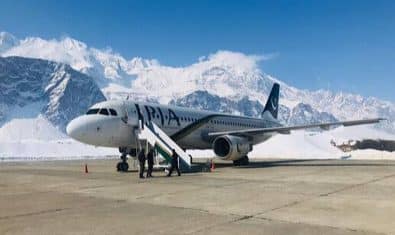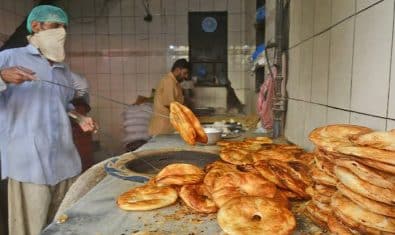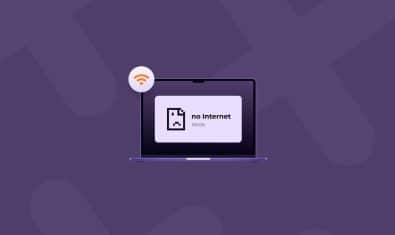ProPakistani had the privileged of sitting down with the VP & Regional General Manager of Europe, Middle East and Africa. This was Pierre-Dimitri’s very first interview with any Pakistan-based media outlet.
The discussion encompassed a lot of aspects regarding the company and its aims for the Pakistani industry. Here is the complete interview:
Q) Why has Uber decided to launch an insurance product for its driver partners in Pakistan?
A) This Injury Protection program was designed after our driver partners told us they want more security and peace of mind while preserving the flexibility they all value.
Thus, this product helps protect our driver partners against medical costs and lost earning opportunities due to accidental injuries sustained while they are on a trip.
It is our belief that we have an important role to play in empowering people to get access to quality economic opportunities and are excited to have developed a leading insurance product for the ride sharing industry here in Pakistan.
Q) Tell us a bit about this insurance product and what benefits does it entail?
A) We worked closely with Chubb Insurance [Pakistan Limited] to develop this Injury Protection program, which covers more than 30,000 active, independent Uber driver-partners across Pakistan. The key to the product is the ability for drivers to be protected from the financial cost of injury, including medical expenses and lost earning opportunities, if an accident takes place while driving on the Uber app.
For example, if an accident happens on a trip, this cover reimburses the partner for necessary medical costs incurred following the accident (e.g. X-ray, operations, medicines) In addition, this cover reimburses ambulance service costs and provides an immediate small lump sum payment to cover basic medical treatment needs. In case the accident makes it impossible for our partner to conduct Uber rides in the short-term, a daily payment will be provided for up to 30 days after a doctor medically declares them unfit to work.
Moreover, in the unfortunate event that a driver-partner loses their life as a result of an accident on a trip, their dependents or heirs will benefit from a lump sum payment. They will also obtain an additional lump sum amount for any incurred Funeral Expenses.
Lastly, in the unfortunate event that the partner suffers a permanent disability as a result of an accident on a trip, they will benefit from a lump sum payment. This amount depends on the severity of the disability, as determined by Chubb Insurance Pakistan Limited.
Q) Does this have something to do with the regulatory and labor hurdles the company has faced in countries i.e. UK and America?
A) As the ‘gig economy’ grows there are some concerns that the growth of self-employment is leaving more people without the safety net that traditional employees receive. In offering partner protection, we believe we are leading the way in what this safety net may look like and hope other companies will follow suit.
Q) What are some of the regulatory issues that you are facing particularly in Pakistan?
A) Obviously, just likes Uber’s beginnings in a host of countries, we did face stumbling blocks at various places, but we are engaged in a number of conversations around how our technology works in the transport space, as there are multiple stakeholders involved in these discussions. The feedback so far from the regulators and public has been extremely positive. Everyone sees a need for our technology in Pakistan. And when we have faced issues beyond our control, the law enforcement agencies have been supportive and are keen on coming up with joint solutions.
Q) How much has Uber paid/invested in this policy?
A) This is a significant investment by Uber and we believe this groundbreaking insurance coverage is a big step forward for Uber and our Partners in Pakistan.
Q) Is this insurance product similar to the insurance products you offering in other operating countries? If not, then why is this so?
A) This product has been rolled out to Egypt, Saudi Arabia and Pakistan on the same day and entails similar benefits. India also has a similar insurance offering, where more than 450,000 driver partners are covered for death, disability and hospitalization, while on a trip.
But, this Injury Protection program is different from our insurance offerings in Europe and USA. In the US, for example, we’ve rolled out an affordable and easy to use option, Driver Injury Protection, in 39 states and are working on long term reforms such as the creation of a portable benefits system. In Europe, we have been able to modernize and pioneer on social coverage for independent workers because of reforms pursued by governments such as in France.
Q) What benefits did Uber offer to the family of the recently deceased driver in Pakistan? Moreover, did the three unfortunate deaths (including competition) prompt Uber to work on a life insurance policy?
A) As part of the policy, in the unfortunate event that a driver-partner loses their life as a result of an accident on a trip, their dependents or heirs will benefit from a lump sum payment. They will also obtain an additional lump sum amount for any incurred Funeral Expenses.
We have spent nearly a year talking to drivers on what they believe will work for them, and developed the program with Chubb.
Q) What safety measures are you taking to ensure such incidents do not occur in the future?
A) For Uber, safety of its driver partners and riders is of paramount importance. For this purpose, we use in-app technology to offer a host of safety features for both driver partners and riders.
In-app, we offer the ‘Share my trip’ feature, where driver partners can let friends and family know about their whereabouts and trip status. All riders need to create an account and provide their name and phone number before they can request a ride. So when a driver partner accepts a request, they know who they are picking up and so will Uber. Drivers also receive turn-by-turn directions in the app, so they can focus on getting to the destination safely.
We also conduct periodic trainings for our driver partners in partnership with law enforcement agencies. These trainings are typically regarding safety, traffic rules and regulations. Trainings on social norms are also mandatory for driver partners, where they learn how to “recognize, prevent and take positive action” against inappropriate behavior.
Last, but not the least, Uber’s community guidelines are available online, which lay down the ground rules to ensure that riders and drivers have a five star ride when using Uber. We believe we introduced an industry first driver hour limit, it’s another example of how Uber uses technology to help enhance driver and passenger safety.
Q) In a recent interview, you mentioned how Uber was moving from a ‘growth at all costs’ model to a ‘responsible growth’ model. Can you please elaborate on this new direction
A) What I mean by this is that we are now looking at the network and ecosystem that can help long term growth.
Q) Are you planning to launch uberEATs in Pakistan anytime soon?
A) We are always exploring how we can make our products and services available to more people in more cities.
Q) What are Uber’s future plans for Pakistan? How do you see these ride-sharing apps changing the market dynamics going forward?
A) We will continue to work closely with the government so Pakistanis benefit from reliable, affordable and safe transportation like Uber. Last year, we already pledged to invest an additional $500 million towards expanding our operations in Pakistan. We are committed to creating thousands of work opportunities and improve overall economic empowerment for Pakistanis.
Ride sharing apps like Uber not only improve access to safe transportation for the masses, but also allow for increased job opportunities. This is definitely the future, especially given the trust and uptake shown by people in countries we operate in.
Q) Could you please share some stats around Uber Pakistan, including the total number of partner drivers and users registered, rides per month and your best performing city in Pakistan?
A) I am proud of the fact that in just over two years, Uber has created 100 of thousand economic opportunities for Pakistanis in 9 cities who leverage the power of Uber’s technology to drive and earn according to their own schedules. Uber is a rare example of how technology is having such a pronounced impact so quickly on a large number of people in Pakistan.
We offer a wide array of products in Pakistan to cater to the diverse socio-economic needs of our population. In fact, the growth of UberMoto business following launch has been one of the fastest in EMEA.
The range of products we provide include Moto (Motorcycle), Auto (Rickshaw), Mini (Small Hatchback—Mehran, etc.), Go (Regular Hatchback—Wagon R, Cultus, etc.), and uberX (Premium Sedan—Corolla, City, etc); with over 30,000 active drivers a month.


























Given the retrenching and local mergers for Uber in most emerging markets recently, it would have been nice to know Uber’s longer term plans for Pakistan.
What’s really missing from this interview is the numbers- how many Uber drivers, customers and revenue ? Nobody is expecting profitability anytime soon.
Number of drivers is given in the last paragraph. Mostly Uber survives because VCs in the US are throwing billions at it. The Federal Reserve’s QE has led to a lot of cheap capital for tech firms. I read elsewhere that Uber is looking to acquire Careem’s operations in the middle east which will probably include Pakistan as well. This may put an end to the great discounts these two companies give people.
I will boycott this merger both are good on its own but big no to merger it will destroy both companies.
Yes but not enough ! 30K in a “major market” vs 1m for Careem per their PR.
Careem hasn’t raised any significant funds since MbS invested $2.5B in Uber instead after talking big about Arab entrepreneurship. Careem, owned by Prince Al-Waleed, after the big princely civil wars, isn’t likely to be acquired by its rival. Careem too is a beneficiary of oil money vs Uber QE money.
But at least Uber pioneered a great idea- all others are copycats.
Maybe we need a Naya taxi service to create those 10m new jobs?